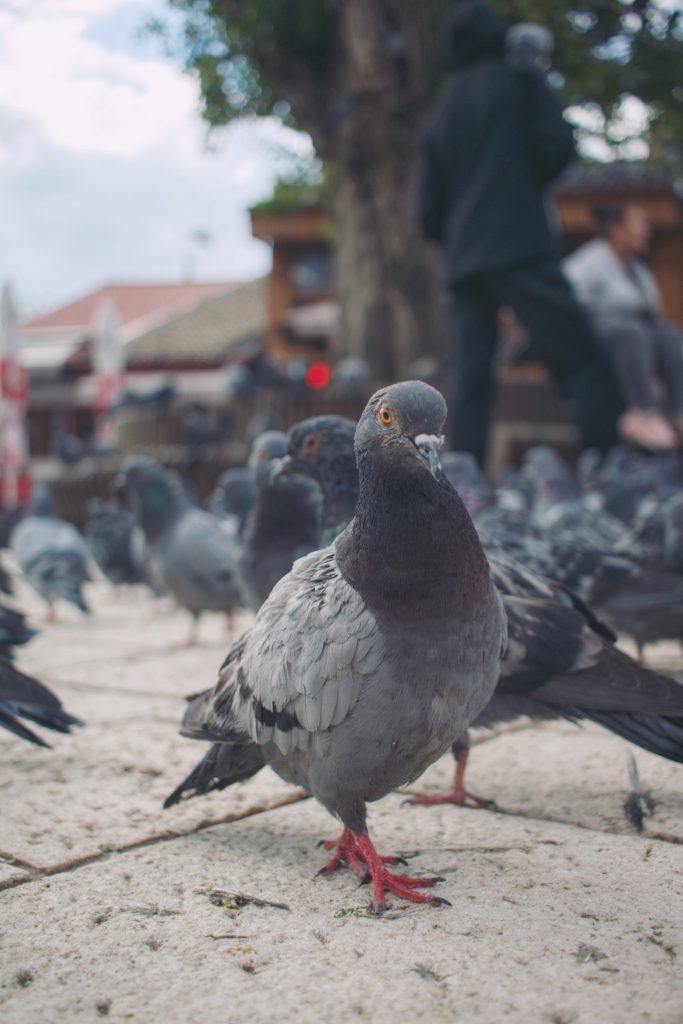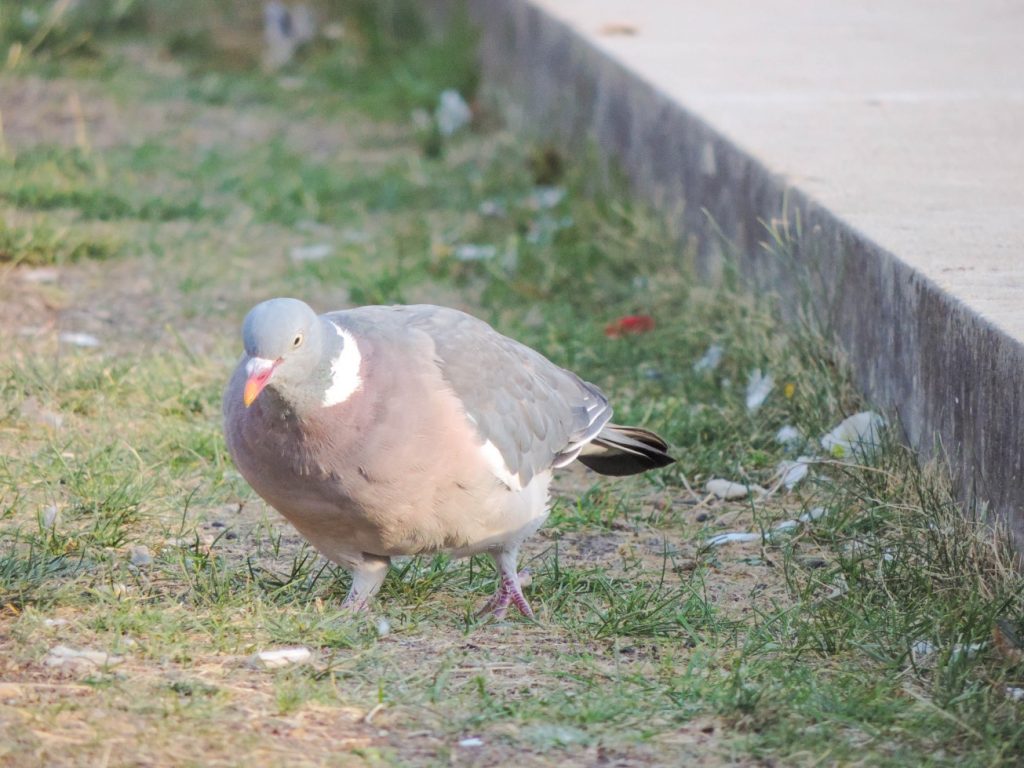In the UK, the Department for Environment, Food and Rural Affairs (DEFRA) enforces legislation under the Wildlife and Countryside Act 1981 (Chapter 69), which makes it illegal to kill or harm wild birds—including pigeons and gulls—unless permitted under specific licences.
If a property owner is facing a situation where they need to remove a bird from their garden or backyard, non-lethal control methods must be tried first before resorting to lethal action such as shooting. It is also important to note that the property owner remains legally responsible, even if they hire a contractor to carry out the work.
Yes, under current general licences in 2024, individuals may lawfully shoot certain species of pigeons in specific circumstances—provided they comply with the licence conditions and have tried non-lethal alternatives.
What Licences Apply to Shooting Pigeons in the UK?
Natural England and DEFRA operate a general licensing system for managing certain wild birds in England. These licences are reviewed and updated annually. You do not need to apply for a general licence, but you are legally required to comply with the terms and conditions of the relevant licence.
These licences permit the shooting or trapping of certain bird species, such as pigeons, for specific purposes—including preserving public health, preventing serious damage to crops or livestock, and safeguarding the environment.
| UK Licences | General Licence Purpose |
|---|---|
| GL42 (England) | Prevent serious damage to livestock, crops, food for livestock, fisheries, or forestry. |
| GL41 (England) | Preserve public health or public safety. |
| GL03 (Scotland) | Prevent serious damage (Scotland). |
| GL02 (Scotland) | Preserve public health (Scotland). |
| GL002 (Wales) | Prevent serious damage (Wales). |
| GL001 (Wales) | Preserve public health (Wales). |
| TPG1 (Northern Ireland) | Prevent serious damage (NI). |
| TPG2 (Northern Ireland) | Preserve public health (NI). |
⚠️ Note: Different licences apply to woodpigeons and feral pigeons. If you use the wrong licence, you could be acting unlawfully. Keep reading to discover which licence applies to which type of pigeon.
Natural England continues to promote the use of non-lethal methods for managing wild birds. Anyone who causes unnecessary suffering to a bird can be prosecuted under the Animal Welfare Act 2006. If questioned by authorities, you may be required to prove that you tried non-lethal methods first, and that your actions were compliant with a specific licence.
There are also specific rules for using live traps in England, which must comply with welfare regulations and be checked at least once every 24 hours.
You should always visit the GOV.UK website for the most up-to-date information.
What Types of Pigeons Can I Shoot in the UK?
You do not need to apply for a general licence, but you must act within the terms of the correct licence and be able to prove compliance if questioned.
| Pigeon Species | England | Scotland | Wales | Northern Ireland |
|---|---|---|---|---|
| Feral pigeon | GL41, GL42 | GL02, GL03 | GL001, GL002 | TPG1, TPG2 |
| Woodpigeon | GL42 only | GL02 | GL001 | TPG2 |
⚠️ Important: Licences issued for public health and safety (GL41, GL03, GL002, TPG1) do not cover woodpigeons. If you plan to shoot woodpigeons, you must correctly identify the bird and ensure it is covered under the applicable licence.
What’s the Difference Between Feral Pigeons and Woodpigeons?
Feral Pigeons

Feral pigeons are commonly found in cities like London. They can recognise people who feed them and will return for food. Once one arrives, others often follow.
They prefer nesting in buildings—particularly abandoned or open structures with a water source. These birds can live in large numbers and may carry diseases or contaminate spaces with droppings.
If pigeons are nesting in your property, consider removing their access to water and food before taking further action.
Woodpigeons

Woodpigeons are more rural and selective in diet, preferring berries, leaves, and fruit. They are often larger due to better nutrition.
They build nests in quieter areas—woodlands, parks, and gardens—and tend to live near water sources. Their countryside habitat also exposes them to natural predators like foxes.
You can distinguish a woodpigeon by its white neck patch, pink breast, and white patches on the wings when in flight.
Can I Shoot Pigeons with a Firearm?
Yes—but strict firearm laws apply. According to the British Association for Shooting and Conservation (BASC):
- Discharging a firearm within 50 feet of a road or public path is illegal if it causes danger, harm, or inconvenience to others.
- Under Section 19 of the Firearms Act 1968, carrying a firearm in a public place without good reason is an offence.
- You cannot shoot across public footpaths, even on private land, as this endangers public access rights.
- Section 28 of the Town Police Clauses Act 1847 prohibits discharging a firearm in any “street” or public space that could endanger or disturb others.
In summary: You may only shoot on private property, away from public spaces or rights of way, and in a manner that poses no risk or nuisance to the public.
Can I Shoot Pigeons with an Air Rifle?
Yes, but air rifles are also subject to regulation.
While air rifles are not always legally defined as firearms, many of the same rules apply—especially where the rifle has enough power to injure. Usage laws differ slightly between England, Wales, and Scotland, and anyone using an air rifle for pest control must understand the specific legal framework in their region.
You must never shoot across public areas or cause risk to others. For detailed guidance, visit BASC or your local police force’s firearms licensing pages.
Can I Pay Someone to Get Rid of Pigeons?
Yes. Merlin Environmental is a registered and accredited pest control company offering bird pest control services for pigeons across the UK and Ireland.
We use a wide variety of effective and legally compliant methods to remove pigeons from homes, businesses, and industrial properties. Everything is done within the confines of the law, with minimal disruption and maximum effectiveness.
Contact us today to arrange a free site visit. We’ll assess the bird species, review your legal options, and provide a no-obligation quote. If you choose to proceed, we’ll handle the pigeon problem quickly, safely, and professionally.

